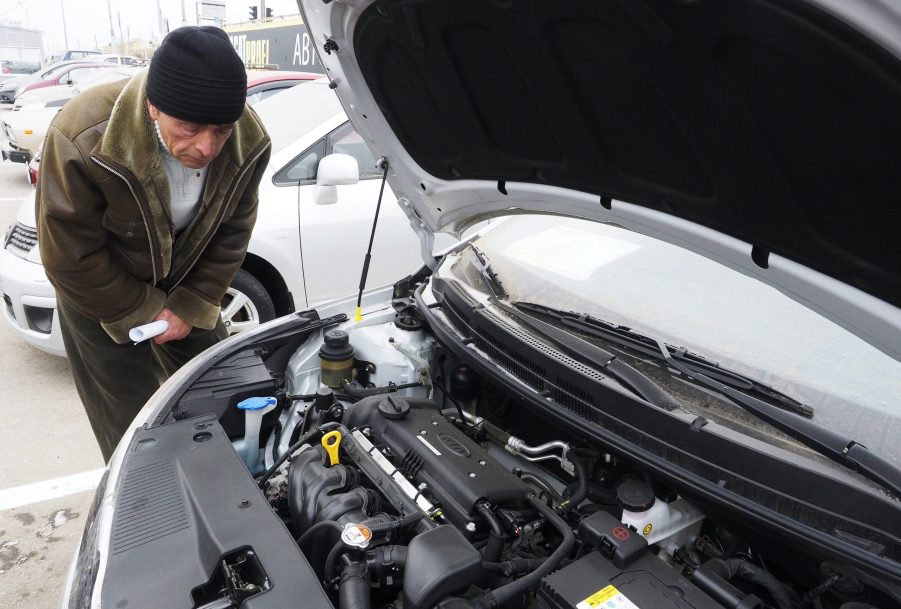
Selling Your Car Privately? Here Is How You Can Avoid Getting Your Time Wasted
It’s no secret that selling your car privately can yield more money than if you were to trade it in or sell it to a dealership. By selling your car privately, you can set the price higher, but that higher price comes with the expense of spending time and effort in selling the car yourself. Potential buyers end up flaking and there are plenty of scammers to go around as well. Here are a few tips on avoiding the “time wasters” when selling your car.
A good screening can filter out some non-prospective buyers when selling your car

Now that you have taken the time to clean your car, take a bunch of pictures of it, and then post a really good ad, it’s time to sit back and let the e-mails and calls flood in. However, just remember that only a small amount of those inquiries will be serious as many potential buyers could potentially waste your time. There will undoubtedly be many people calling or contacting you to get the lowest price without even seeing the car first or possibly even scamming you.
In order to cut down on the potential scammers and time wasters, Driveo recommends screening each inquiry with the following questions:
- Get the person’s full name: If the person calling or e-mailing you doesn’t want to give you their full name, hang up or don’t reply. Anyone that isn’t willing to give this information – especially since you’ll need it eventually to complete the paperwork– most likely isn’t serious.
- Ask if the person is in your area: Anyone contacting you from overseas is most likely a scammer and those calling from far away may not be that serious. However, if they are in your area, then they may be more serious.
- Ask if they want to see the vehicle: Anyone that is really interested in the car will want to see it in person and make a reasonable offer. However, if anyone starts making offers without seeing the car first, then there’s a good chance that they’re not serious and will waste your time.
Take some precautions during the test drive

When you do get a few serious buyers to check out your car in person, remember to take some precautions when conducting the test drives. Kelley Blue Book recommends meeting up with buyers in a public location near a relaxed drive route. A parking lot with plenty of cameras should work well or if you want to be extra safe, then meeting at a police station could work well. If possible, bring a friend or family member with you.
As far as the actual test drive, plan a short route that goes through populated areas and make sure to ask to see the buyer’s driver’s license before setting out. Also, if you want to go on the test drive with the prospective buyer, then that’s up to you considering the current coronavirus safety measures.
Ensure a safe payment transaction

When it comes time to actually sell the car, the buyer may want to negotiate with you. After doing so, then you’ll want to ensure that you receive the payment safely. As always, cash is king, but if you feel safe using a touchless form of payment like Zelle, Venmo, or Paypal, then do so.
This part of the process should be as straightforward as possible and you should be wary of any unusual payment suggestions. Some buyers will ask you if they can make payments or obtain a loan for the car. It’s up to you if you want to proceed in that way, however, you’ll run the risk of not getting paid. Also, remember to keep the car’s title and other paperwork out of sight until the payment is agreed upon and received.
Protecting yourself after the sale

After you have received the payment from the buyer, it’s time to sign the car’s title over. KBB recommends making a copy of the signed title (front and back) and recording the car’s exact mileage after doing so. That way, if the buyer gets into an accident within two miles after buying the car, they can blame you.
Also, be sure to fill out a “release of liability” form with your state’s DMV as soon as possible to ensure that you don’t get blamed for anything that happens to the vehicle after the sale.
By following these guidelines, you should be able to sell your car privately without much of an issue. Just remember that it can take some time and effort to get it done, but it only takes one buyer to make the whole thing happen. You never know, you may even get more than your asking price.



